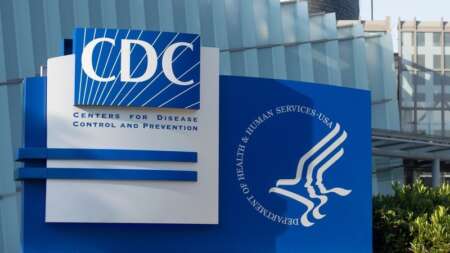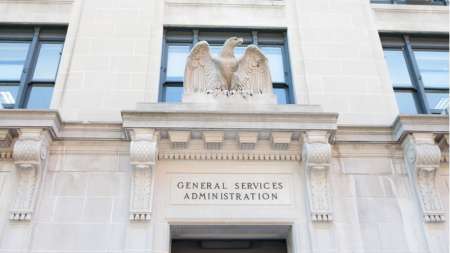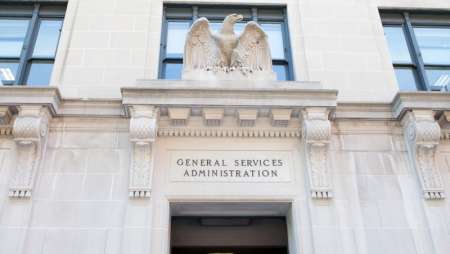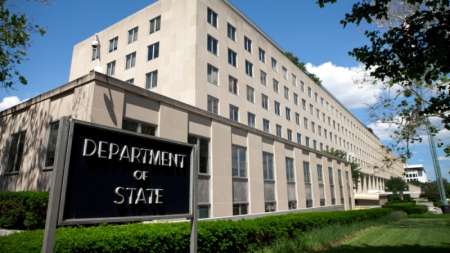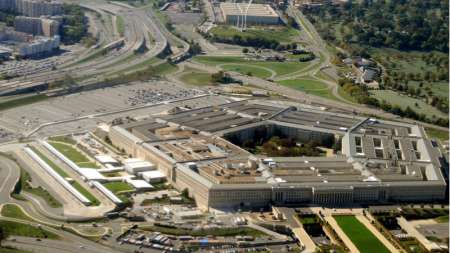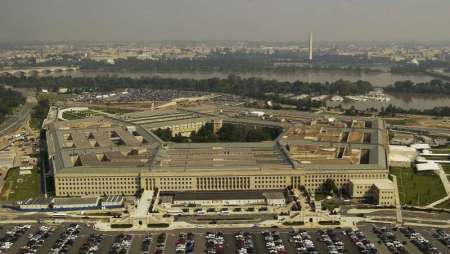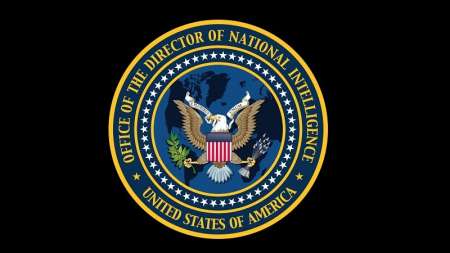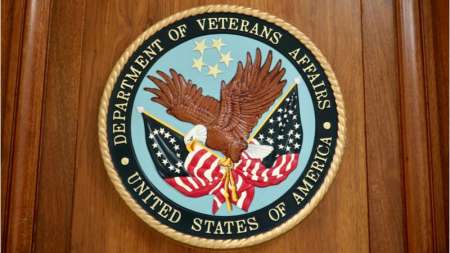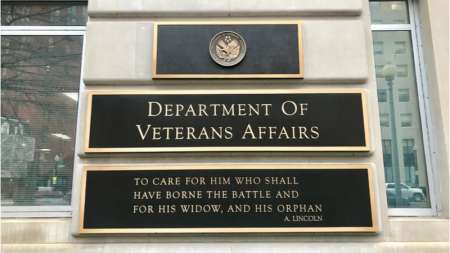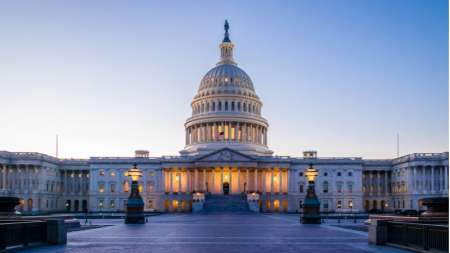Alan Sim, who has served since 2020 as chief data officer in the Centers for Disease Control and Prevention’s (CDC) Office of Public Health Data, Surveillance, and Technology, is stepping down from that position. […]
The U.S. Space Force has awarded Boeing a $2.4 billion contract to build up to four new satellites as part of an effort to modernize space-based nuclear command, control and communications (NC3) capabilities, Space Systems Command (SSC) announced July 3. […]
The Trump Administration has extended its Federal government-wide hiring freeze until mid-October – just days before the hiring pause was scheduled to expire. […]
The General Services Administration (GSA) is conducting market research as it considers a potential successor to the Enterprise Infrastructure Solutions (EIS) contract vehicle, which is scheduled to sunset in July 2032. […]
U.S. Cyber Command’s fiscal year (FY) 2026 budget request includes a new initiative to rapidly test and validate artificial intelligence (AI) technologies for operational cyber missions. […]
The Department of Veterans Affairs (VA) announced on Monday afternoon that it is on track to reduce its workforce by nearly 30,000 employees by the end of fiscal year (FY) 2025, eliminating the need for the agency’s previously planned mass layoffs. […]
The General Services Administration’s (GSA) pilot to require all multiple award schedule (MAS) contract holders to report transactional data is unlikely to be effective, according to a report from the agency’s Office of the Inspector General (IG). […]
A new artificial intelligence model born out of a collaboration between the National Oceanic and Atmospheric Administration (NOAA), Google DeepMind, and Google Research is aiming to improve tropical weather forecasting. […]
The so-called “Big Beautiful Bill” that President Donald Trump signed into law on Friday instructs the IRS to deliver a report to Congress on how it could replace Direct File, the program that allows taxpayers to file their taxes for free directly with the IRS. […]
The Department of Defense’s (DoD) Chief Digital and Artificial Intelligence Office (CDAO) plans to eliminate its chief technology officer (CTO) role and directorate as part of the Trump administration’s broader efficiency efforts in the fiscal year (FY) 2026 budget. […]
Luis Coronado Jr. is stepping down as chief information officer (CIO) at the State Department’s Bureau of Consular Affairs, a State Department spokesperson confirmed to MeriTalk. […]
A Federal judge has extended a temporary restraining order (TRO) for two additional weeks in a lawsuit brought by a coalition of major research universities against the U.S. Department of Defense (DoD). […]
President Donald Trump signed a massive reconciliation package into law on Friday that features several cyber and AI-related provisions, including those aimed at bolstering the Pentagon’s tech capabilities, building up rural healthcare systems, and adding more tools for monitoring the country’s borders. […]
The General Services Administration (GSA) announced an agreement today with Oracle to offer a 75 percent discount to government agencies on Oracle’s License-based technology and “substantial base discounts” on Oracle Cloud Infrastructure (OCI) services through November. […]
MeriTalk is delighted to honor the 2025 class of AI Honors Award Winners – the 30 women and men working across government and industry right now to bring AI to bear in shaping the ongoing revolution in government IT service. […]
Army Chief Information Officer (CIO) Leonel T. Garciga has ordered all new Army cloud procurements to route through the Pentagon’s Joint Warfighting Cloud Capability (JWCC) contract, streamlining acquisitions under a single enterprise-wide vehicle, according to a June 30 memorandum. […]
A top political action committee (PAC) has asked that the Department of Defense (DoD) open an investigation into whether recent U.S. Army recruits hailing from leadership roles in industry pose any conflict of interest in military operations. […]
The Justice Department (DoJ) has announced the results of its 2025 National Health Care Fraud Takedown, which resulted in criminal charges against 324 defendants for their alleged involvement in schemes exceeding $14.6 billion in intended loss. […]
Sen. Tom Cotton, R-Ark., has introduced legislation to overhaul the Office of the Director of National Intelligence (ODNI), reduce its size, and refocus its role within the U.S. intelligence community. […]
The Service to the Citizen Awards Program has announced its 2025 award winners that include senior officials from U.S. Customs and Border Protection, the Social Security Administration, and Adobe – among many others from Federal and state government and the private sector. […]
Amid rising cyberattacks on healthcare systems, the Food and Drug Administration (FDA) is urging medical device makers to build cybersecurity into devices from the start as part of new guidance that outlines protections across the entire product lifecycle. […]
The Department of Defense (DoD) plans to establish a new joint interagency task force to confront the growing threats of unmanned aerial vehicles (UAVs) — more commonly known as drones. […]
Federal Communications Commission Chairman Brendan Carr on July 2 unveiled his Build America Agenda that aims to have the agency pursue action on a number of fronts to pave the way for service providers to build out more fiber-based networks that provide high-speed broadband services. […]
With a March presidential executive order putting some breathing room between the Federal government and states on cybersecurity protections – and state and local governments hoping for a second go-round of funding from Congress under the 2021 State and Local Cybersecurity Grant Program (SLCGP) – we checked in with Gary Barlet, Illumio’s public sector chief technology officer, for his read on the new landscape. […]
The Department of Veterans Affairs (VA) is not ensuring the IT systems it purchases meet accessibility standards required by law, according to a new report from the VA Office of Inspector General (OIG). […]
The U.S. Space Force has delayed the inaugural launch of its next-generation missile warning satellites in medium-Earth orbit (MEO) from late 2026 to spring 2027, citing supply chain delays and technical hurdles, a senior official confirmed this week. […]
President Donald Trump has nominated Ryan Cote to become the assistant secretary for information and technology and chief information officer (CIO) at the Department of Veterans Affairs (VA), the White House announced on Tuesday. […]
The U.S. Navy’s Fleet Numerical Meteorology and Oceanography Center (FNMOC) will stop processing and distributing data by the end of July from a decades-old military weather satellite program that has provided crucial environmental intelligence, a spokesperson confirmed to MeriTalk. […]
Now that the Senate has pushed its version of reconciliation funding over the finish line amid a blizzard of changes to the bill, here’s a look at a few workforce and tech items that either failed to make the final version of the legislation, or were beaten back on the funding front during the process. […]
The Office of Personnel Management (OPM) on July 1 announced plans to modernize its FedScope platform which serves as a resource for accessing data about the Federal workforce, and released some new – though now out of date compared to other sources – data on the size and composition of the Federal workforce as of March 2025. […]

